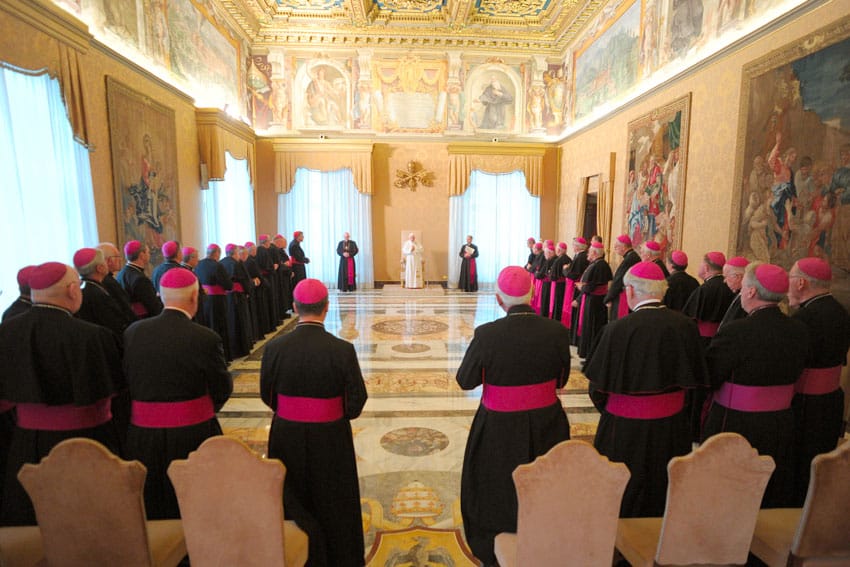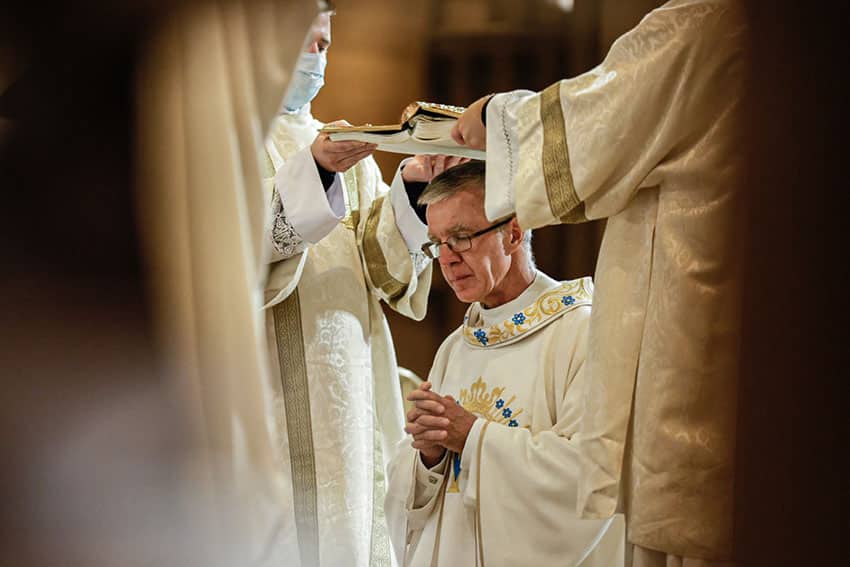
The second assembly of the fifth Plenary Council of Australia has now begun. An historic moment for the Church in Australia, several years of listening and discernment, of prayer and planning, have brought us to this moment.
There is much more to the week than voting on the motions before us, but all eyes will be on the results of the votes on the 30 or so motions upon which Council members will vote.
Each afternoon there will be a consultative vote on the motions, cast by all Plenary Council members except the bishops. There are about 240 consultative-voting members in total.
Each morning the bishops will cast their deciding vote on the motions put to a consultative vote the day before.
During pre-assembly gatherings and in informal conversations it has been suggested that bishops should simply ratify the outcome of the consultative vote. In other words, if two-thirds of members vote up a motion, it is being suggested that the bishops should not vote against it using their deliberative vote.
“Bishops of Australia: those asking you to endorse the consultative vote, even if you do not agree with it, would make your presence at the Plenary Council nothing more than window-dressing.”
Some bishops and some laity say that to do otherwise would be a bad look, and might give the impression that the hierarchy isn’t listening to the people.
The Catholic Weekly implores the bishops of Australia to reject this position. Whether they realise it or not, those who are asking the bishops to rubber stamp the consultative vote are in fact calling for the episcopate to be made redundant.
After all, if the consultative vote was the determinative factor in the final, legislative decrees of the Plenary Council, then it would be the members who aren’t Bishops who become the decision-making body. Why have a deliberative vote of bishops at all?
Bishops of Australia: those asking you to endorse the consultative vote, even if you do not agree with it, would make your presence at the Plenary Council nothing more than window-dressing.
This would be a disaster because even after the demands of consultation, co-responsibility, synodality and all else have been fulfilled, a bishop still retains the sacred duty to shepherd, to teach, govern and sanctify.
In the Vatican II decree Christus Dominus, the Church asks its bishops to “present Christian doctrine in a manner adapted to the needs of the times, that is to say, in a manner that will respond to the difficulties and questions by which people are especially burdened and troubled. They should also guard that doctrine, teaching the faithful to defend and propagate it.”

The Plenary Council is taking pains to adapt the faith to Australia’s contemporary circumstances. But the bishops have a deliberative vote for a reason: to guard the faith, and teach the people.
As Christus Dominus also says, “Bishops should dedicate themselves to their apostolic office as witness of Christ before all men”.
This duty shouldn’t be hidden under a bushel basket or treated as something that can be dissolved into a general consensus derived from the second assembly.
The lay members of the Plenary Council have their responsibilities and God will give the grace to fulfil them; likewise for the episcopate. All participate in the baptismal priesthood of Christ and all have been blessed with many graces that make fruitful the mission God has given them.
But the grace given to each bishop at his consecration is not only a gift from God to the individual man, but to the whole Church as well. As much as you rely on the graces given to you at Ordination, we rely on them too.
“True fathers listen to their children, teach them and give them the tools and the freedom to make good decisions themselves. And their children gratefully obey.”
“Let them be true fathers who excel in the spirit of love and solicitude for all and to whose divinely conferred authority all gratefully submit themselves. Let them so gather and mold the whole family of their flock that everyone, conscious of his own duties, may live and work in the communion of love,” Christus Dominus says.
We need fathers who care about us. No true father agrees with and facilitates every decision their child makes. Bad fathers do that.
True fathers listen to their children, teach them and give them the tools and the freedom to make good decisions themselves. And their children gratefully obey. The bishops must deliberate in order to elicit true obedience, in love, from the Church.
As the second assembly unfolds we who love the Church and its pastors will be praying for the success of the Plenary Council. Its success will depend on the whole Church, of course, but in a special way it depends on you.
